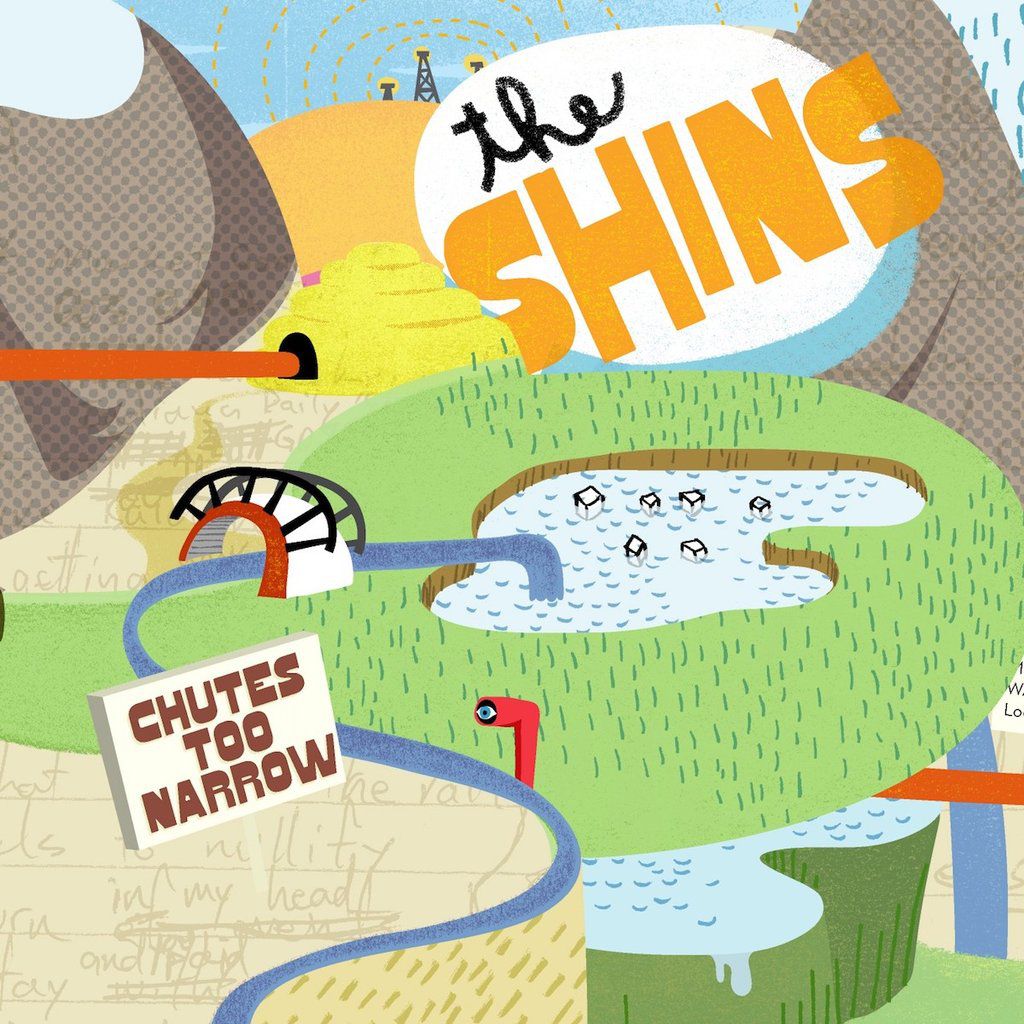Classic Album Review: The Shins’ Chutes Too Narrow Shows the Timelessness of Excellent Pop Songs
Around the early 2000s, New York’s post-punk resurrection scene was flourishing. Bands such as Interpol, Yeah Yeah Yeahs, and The Strokes were becoming staples in the community, and they incorporated the unvarnished instrumentation that came to reevaluate the genre. Just a few years afterwards, nevertheless, indie rock took a less accelerated, more subdued twist. Death Cab for Cutie published Transatlanticism in 2003, and Arcade Fire published Funeral in 2004, both of which can be seminal records that marked this transition from trendy indifference to sorrowful introspection.
The Shins discovered a balance between both, opting for neither garage rock nor reverb-drenched lamentations. The Albuquerque-based group blended these fashions, resulting in masterfully crafted, hook-laden pop tunes. Their second album, Chutes Too Narrow, is now 15 years old, and also these pop tunes prove as timeless as ever. Recorded in songwriter James Mercer’s Portland cellar, Chutes Too Narrow feels like a personal record regardless of its universal relatability. Mercer’s voice is the centerpiece of every song, placing his revolutionary, memorable melodies in the forefront. His vocal hooks wisely and unpredictably weave their way into and from simple chord structures.
Chutes Too Narrow is the musical evidence that three-minute pop tunes can be refreshing and considerable, and a lot of that evidence lies within Mercer’s impressive vocal performances. Opener “Kissing the Lipless” illustrates this, together with Mercer singing in a quiet mid-register within an acoustic guitar. From the second verse, he opens right into a exploding falsetto, only to return to a milder dynamic in the outro. “Fighting in a Sack” is just yet another showcase of Mercer’s vocals, and despite being a verbally busy trail, it doesn’t even present itself as oversaturated or tedious. He uses each syllable to donate to the lively pace.
Melodic excellence apart, Mercer’s legends are dense nonetheless literal. Metaphors are packed into apparently every inch of space, and nothing seems clichéd or trite. He explores a variety of topics, as well, ranging from failed relationships to misanthropy and faith. His lyrics aren&; rsquo;t even obscure to the point at which no meaning can be gleaned from these, and even though they’re not shrouded into a nebulous haze, they’re worth considering over.
“So Says I” positions Mercer in a conflict of economic units, but he finally reasons that humankind is “a brutal form ” also, therefore, will never find utopia. Standout monitor “Saint Simon” shares a comparatively similar opinion. Mercer’s existential philosophy is one’s lack . Even the ever-sought-after “meaning of life” will probably always be evasive, and faith, science, and philosophy will always work to come nearer to discovering it, however, as Mercer says, “There’s still so much that arouses. ” It’s why he leans toward uncertainty and even finds solace in it.
The embrace of apathy is a recurring theme throughout the album, and it serves as a welcoming, poignant contrast to this resilient, eager nature of the music. “Fighting in a Sack” is the microcosm of the formula. Over accelerated drums and also a swung strumming pattern, Mercer contemplates obsolete modes of thought (“Marionettes on weakening wires ”-RRB- and the impermanence of our lives (“We know our destiny, and it’s a lot to put us through”-RRB-.
However, The Shins don’t always adhere to this formula, remaining hushed on tunes such as “Pink Bullets” and nearer “Those to Come”. They bring variety to the table, plus they add contrast in precisely exactly the identical way that the album ’s lyrics juxtapose its own instrumentation. “Gone for Good” is the twangy epitome of Mercer’s outstanding use of dynamic variance. It directly follows among the album’s louder moments, also, rather than coming across as inconsistent or jarring, it demonstrates Mercer’s musical assets exist within a spectrum. He isn’t even a limited songwriter in the feeling that he limits himself within one thought. He’so exploding with ideas, and Chutes Too Narrow sets them out in a beautiful, well-crafted pile.
Chutes Too Narrow is The Shins’ most cohesive, superb record thus far. It’s a record that shows that the timelessness of masterful pop tunes and beautiful melodies. Most early-2000s literary rock is still wonderful to hear, however, it sounds somewhat aged. Chutes Too Narrow, though, beams.
Critical Tracks: “Saint Simon”, “Gone for Good”& &; ldquo;Kissing the Lipless”
Buy Tickets for every event – Sports, Concerts, Festivals and more buytickets.com
